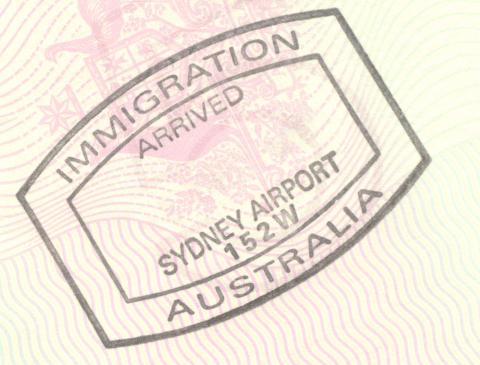Last weekend Fiji's police force arrested six prominent opponents of the ruling party. Their alleged crime was breaching the Public Order Act by making remarks about the constitution at a conference convened by Pacific Dialogue, an NGO, on Fiji's Constitution Day. The arrests were nothing short of a government-sponsored assault on its own democracy, and yet another worrying sign that the Fijian Government is uncommitted to the full restoration of democracy.

The six arrested were the leader of the National Federation Party, Biman Prasad; the party (but not parliamentary) leader of the Social Democratic Liberal Party and former prime minister, Sitiveni Rabuka; the general secretary of the Fiji Council of Trade Unions, Attar Singh; academic and former politician, Tupeni Baba; Jone Dakuvula, from Pacific Dialogue; and Labour Party leader and former prime minister Mahendra Chaudhry. They were not charged while in police custody for 48 hours but their cases have been referred to the director of public prosecutions, so their eventual fate is not yet clear.
The arrests were made under a 2012 decree that amended the Public Order Act to allow charges to be laid against anyone who takes part in a public meeting for which a government permit has not been obtained. Pacific Dialogue had not applied for a government permit to convene the conference but that's not unusual for a civil society event.
The arrests have exposed a key flaw of the constitution, and ironically one that Prasad (one of the arrested) has previously identified. In an opinion piece for the Fiji Times in June, Prasad wrote that the Fiji had a 'parliamentary democracy established under a Constitution that basically plays the role of bridesmaid to decrees and promulgations'. While the 2013 constitution (meant to be the supreme law of the nation) enshrines human rights such as the right to freedom of speech and freedom of assembly, it also provides for those rights to be restricted using laws that were decreed by an unelected dictatorship rather than passed by a parliament. Just what threat was posed to public order by remarks made about the constitution at a NGO conference held on Constitution Day is not clear to anyone. [fold]
Like President Erdogan in Turkey, Prime Minister Frank Bainimarama appears to believe that the only way to govern successfully in a democracy is to eliminate all opposition (including by jailing dissenting voices). But Fiji has no Gulenist equivalent with access to the nation's military assets that can threaten Bainimarama. His party, Fiji First, has a significant majority in the parliament and he enjoys favourable coverage in the nation's media. A recent opinion poll gave him an 82% approval rating, with 51% saying he was doing a very good job and 31% saying he was doing a good job. If the Prime Minister spent more time governing the country and less time worrying about how to shut down a small number of public dissenters, he could be even more popular.
Since the September 2014 elections, opposition parties have played their part in rebuilding the nation's democracy by participating in parliament. Despite strenuous efforts by the government to discredit individual opposition MPs, these parties are still trying to debate legislation and contribute to public debate by engaging with civil society organisations. These arrests will make it more difficult for MPs and for some elements of civil society to persevere in their efforts.
It is hard to see what Fiji's international partners can do about this situation. Bainimarama proved prior to the 2014 elections and reiterated this week that he has no patience for international scrutiny of his government's actions. Further, his removal late last week of Ratu Inoke Kubuabola from the foreign affairs portfolio has cut off a valuable conduit for Fiji's international partners. The popular Kubuabola had established good relations with his Australian and New Zealand counterparts and played an important role in the gradual warming of Australia-Fiji relations. Bainimarama himself has assumed responsibility for foreign affairs. His well-known antipathy for Canberra and Wellington will make it very difficult for the Australian and New Zealand governments to continue improving their relations with Fiji and to express concerns to Fiji counterparts. New Zealand's Prime Minister John Key has already raised the ire of Bainimarama by remarking that the Fijian Government has the support of their people and 'don't need to do anything particularly silly'.
But Fiji's opposition MPs and civil society deserve international support as they strive to rebuild Fiji's democracy. Even if there is nothing practical Australia can do in response to these arrests, it is still important to express concern for dissenting voices in a democracy. Australia's Minister for International Development and the Pacific Concetta Fierravanti-Wells has done that by saying that Australia was 'watching developments' and 'viewing them from the perspective of a government that strongly supports as a matter of principle the universal rights of freedom of speech and freedom of assembly'. Similar sentiments have been forthcoming from New Zealand, the US and EU.
Australia and New Zealand will be loathe to go back down the path of complete estrangement from Fiji, but they will need to be ever more nimble in their approach to Suva if the Fijian Government continues to undermine its own democracy.
Photo: Getty Images/Simon Watts
